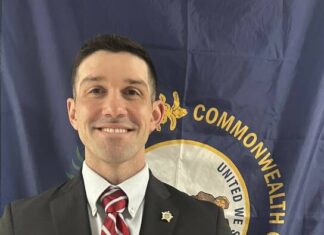I study history because I think we can benefit from learning from mistakes of those before us. Why make mistakes that others have already made? It may seem odd to look at the Middle East, a region that has struggled with freedom and peace. Yet, historically speaking, I believe there is something we can learn from them that might benefit us here.
Since the death of the Prophet Mohammed, the Middle East has split into two warring camps, the Sunni and the Shia. The original conflict was over who should have taken over leadership of the Ummah, or community of the faithful. The next few decades were strife with wars over this issue of succession.
Jump ahead to WWI and the breakup of the Ottoman Empire, which led to the formation of several new nations. One such nation was Iraq. At first Iraq was placed under the leadership of King Faisal of the Hashemite Family who led the Arab Revolt against the Ottomans. Faisal governed fairly between the Shia and Sunnis in his realm. However, the Hashemite rule was ousted in 1968 by the Ba’ath Party that included Saddam Hussein. Hussein, a Sunni, turned on the Shia population, treating them as second-class citizens and subjugated them to all manner of hardships, including torture and death. Experts estimate that Hussein may have killed up to half-a-million of his people, mostly Shia and Kurds.
Finally, in 2003, when the United States declared war on Iraq, the Hussein regime was toppled. The U.S. has allowed the once oppressed Shia to take over leadership of the government and the militia. What is now happening is Shia oppression of the Sunni. This oppression, however, is much less than the decades of pain and murder by the Sunni towards the Shia. In some ways, the Sunni possibly deserve to know what it feels like being oppressed. I completely understand the Shia’s treatment towards their past oppressors. However, though perhaps justifiable, what has it done for the nation and the people? Not only is there no peace in Iraq, but the Sunni began to fight back with the creation of the Islamic State.
I have no idea what it feels like to be oppressed, and some may think I have no right to speak on this subject. However, speaking as a historian, it is difficult to find examples of where any type of reprisal or revenge has helped anyone. It is easier said than done, but the best way I can think of to help any situation of historic oppression is some type of forgiveness. If the oppressor can honestly repent and recognize its wrongs and the oppressed can offer historical forgiveness, maybe not only can we see peace in areas like Iraq, but here also.
When I see the Governor of Virginia taking down the statue of Robert E. Lee from the famed Monument Alley, I can‘t help but think just because you can does not mean you should. How does angering the other side, make anything better? Yes, the Confederacy was wrong. Yes, removing a monument is in no way comparable to treatments Black Americans have endured. But what will it accomplish? Will it make race relations better? Can you say you want peace while purposely provoking the other half of the population to anger, even if justified? I try to understand how this will be hard, but if somehow we can find a way to practice historical forgiveness, perhaps we can find a way for all sides to work together in the future.
A friend recently gave what I saw as a good suggestion. For a compromise, why not leave the statue of Lee in place while also erecting a monument of a slave having her child torn way and sold. That would be a powerful monument and could help tell a painful history. If we don’t want to follow the pasts of other nations, compromise and forgiveness may be our only chance for real peace. We need to work towards racial reconciliation, not racial revenge.
Abraham Lincoln, in his Second Inaugural, noted that the four years of the Civil War resulted in the greatest violence in American history, and called on everyone to forgive each other: “With malice toward none, with charity for all, with firmness in the right as God gives us to see the right, let us strive on to finish the work we are in to bind up the nation’s wounds…to do all which may achieve and cherish a just and lasting peace among ourselves and with all nations.” If those who actually fought against the Confederates can forgive, why can’t we 150 year later?
Dr. James Finck is a Professor of History at the University of Science and Arts of Oklahoma and Chair of the Oklahoma Civil War Symposium. For daily history posts Follow Historically Speaking at www.Historicallyspeaking.blog or on Facebook.





